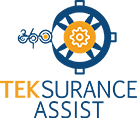Be Cautious – Social Media Scams!
Social Media is a blessing and it can be a curse. What started as a way to connect us with friends and family across the world, is now also a source of vulnerability where hackers can get our most secret information. This does not mean you need to abandon all your Social Media accounts. You just need to take some precautions and be aware of some of the more prevalent scams, so you can protect your data.
What To Watch Out For
Chances are you have taken at least one of those internet quizzes. What’s your favorite car? How about your favorite vacation spot? Think about some of the security questions you have to answer to set a new password. Do those questions ever line up with the internet quizzes you take? What was your favorite childhood hero? What is your favorite color? Scammers can use your quiz results to sometimes reset your passwords to your bank accounts.
It might seem harmless, but details like what your first job was or who your third grade teacher was can actually be used against you. Once hackers know some of these questions, it makes it easier for them to pose as you and potentially steal your identity or take ownership of your Social Media accounts, which are oftentimes linked to your banks and have other critical information.
Hackers have gotten creative in their attempts to steal your identity. It’s best to stay away from fun internet quizzes that could give away too much information about yourself. Those quizzes offer no value except for thirty seconds of fun. In those thirty seconds of fun, you could be setting yourself up for major problems if your information falls into the wrong hands.
How To Avoid Social Media Scams
Aside from not taking those internet quizzes, there are a few other tips you can follow to stay safe on Social Media:
- Be mindful of any links that seem too good to be true. Clickbait tries to lure you in with something shocking, scandalous, or maybe offers for free money. Avoid those links like the plague.
- Don’t give out your email address to just anyone who asks, and don’t take a quiz that will only send you the results if you provide them with an email address.
- Take a look at companies’ websites. Make sure they are legit. It’s always better for you to seek out a website than to click on a link that has been emailed to you or that you see in an ad, which could be illegitimate.
- Some hackers use facial recognition, so only include your picture on websites where you know it is not a scam.
The biggest thing to remember is to think about why that quiz exists in the first place. Is it just for fun? Are there spelling or grammar mistakes that might make you think a non-English speaking person is behind the quiz? Sometimes adversaries from overseas create these quizzes as a way to hack your accounts. Be cautious and never post anything you think is questionable. Be very mindful of links you click on!
Did You Get Hacked – Now What?
Despite your best efforts, you might still have been hacked. It happens to the best of us. Hackers have gotten really smart and creative. After your initial anger and panic, there are a few things to immediately take action on to protect yourself and regain your accounts. If it’s a bank account that was hacked, make sure you call your bank account immediately, so they can freeze activity and change your account numbers.
Work with an IT Team
If you are one of the best lawyers in the world, be the best at being a lawyer. No matter what your area of expertise is, if it’s not IT and cyber security, then you should work with an expert IT team to protect yourself from scams. Cyber security experts can help identify any vulnerabilities in your online presence. They can determine if you have been exposed to a hack and come up with a plan to protect yourself from scammers.
Change ALL your passwords
If your account has been hacked, you need to change all your passwords immediately. Once a hacker gets into one of your accounts, they can probably get into all of them, so you need to change everything. And, don’t save the passwords on your computer. Ideally, you will memorize them. But, you should never store your passwords on any electronic device. A good IT team can help you come up with strong passwords to help prevent yourself from another attack.
Make sure you are using strong passwords going forward. Don’t use your pet’s name or the street you grew up on. Think of something unique that has special characters, numbers, and letters.
Make use of credit monitoring
Financial institutions care if your accounts get hacked. Most major banks will monitor your accounts for fraudulent activity. You will need to get new account numbers if you have been hacked. While you are talking to your bank, you should ask them about credit monitoring or how they can help you stave off any scammers or hackers.
Credit monitoring tools can automatically flag you and send you an alert if any suspicious activity happens on your account. This could help you stop a scammer in his tracks! Do not underestimate this as a tool in your cyber security toolbox.
What Should You Do Now?
Whether you have already been victimized or you want to make sure you are doing everything possible to prevent yourself from falling victim to a Social Media scam, our team can help. Reach out and contact us today, so we can help secure your internet presence. From protecting your bank accounts to guiding what you should and should not post on Social Media, we will help safeguard your identity.
If you have already been hacked, don’t panic. We will help recover all your accounts and put safeguards in place so it does not happen again!
Subscribe To Our Blog

Make a Smart IT decision
Partner with 360 Smart Networks and receive:
- Reliable Outsourced IT services
- Bulletproof Cybersecurity
- Leading enterprise IT solutions






